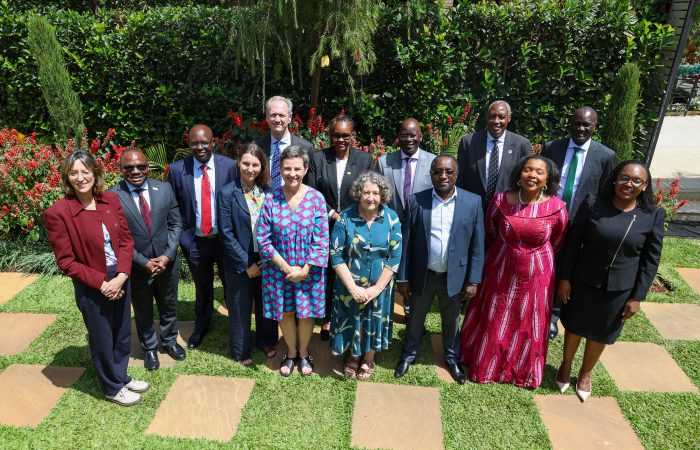
For too long, the economic orthodoxy guiding businesses—as well as the central banks and regulators overseeing them—has taken scant interest in the natural capital that underpins so much economic activity. For decades, many have invested their faith in the power of markets to inexorably protect value and the assets that guarantee it.
However, change is afoot. What’s more, it’s a seismic shift led by Africa.
Natural systems account for 50% of global economic value generation, and few can now doubt that natural assets are inextricably linked to economic health. This emerging consensus, which acknowledges nature’s status as an engine of economic growth, could not come sooner.
The world’s stock of natural assets is declining at a disturbing rate. Just one of many depressing examples is the fate of the world’s coral reef habitats, which constitute the biodiversity engine of our oceans and illustrate the scale of the burgeoning crisis. Oceanpanel.org studies indicate that climate change—and the accompanying acidification of the oceans—will destroy 72% of coral reef habitats by the end of this century. That does not account for the toll of overfishing and pollution, which will cause further damage.
Africa’s leadership in integrating nature-related risk frameworks derives from the knowledge that the continent’s share of damage will be disproportionate. Why? The continent claims a quarter of the world’s natural capital, 65% of the world’s arable land, 25% of the world’s global biodiversity, and 20% of the global tropical rainforest area. Indeed, while the global decline in biodiversity impact index scores amounted to 2.7% between 1970 and 2014, Africa witnessed a decline of 4.2% in its score.
A roadmap for real change
From an environmental standpoint, these statistics suggest a tragedy of unparalleled scale. But economically speaking, the risk is nothing short of existential.
The African Development Bank estimates that natural capital accounts for between 30% and 50% of the total wealth of African countries, and in sub-Saharan Africa, more than 70% of people depend on forests and woodlands for their livelihoods. From agriculture to fishing and tourism, Africa’s economic future is in real, imminent jeopardy.
In December, world leaders convened in Dubai for the COP28 climate change conference, which has elevated nature as one of its central themes—an important move since COP15’s adoption of the Kunming-Montreal Global Biodiversity Framework (GBF). The framework contains vital targets for achievement by 2030, including the conservation of at least 30% of land, sea and inland waters, restoration amounting to 30% of degraded ecosystems, and a $500 billion annual reduction in subsidies that promote biodiversity loss.
Preempting the sceptics, it’s of course true that target-setting and ambitious rhetoric do not themselves address the challenge we face. But establishing nature as a key area of risk management —
Establishing nature as a key area of risk management marks a vital first step from which one can follow a roadmap to real, tangible change.
05/01/2024, 10:56 Dorothy Maseke: Unlocking Africa’s natural Capital: The banker requiring sober, active regulatory intervention marks a vital first step, from which can follow a roadmap to real, tangible change.
Though indispensable, COP is not the only forum for change. The Task Force on Nature-Related Financial Disclosures (TNFD) marks an important shift in how businesses account for their non-financialliabilities as well as their impact on the surrounding ecology. Its recommendations (already launched in Kenya and South Africa) have convinced much of the private sector that environmental performance is as material as revenues and market share — a shift inconceivable only a decade ago.
In Africa, both the African Natural Capital Alliance (ANCA)-run as well as the work of TNFD consultation groups in Kenya and South Africa are revealing significant private sector interest in the early adoption of nature-related disclosures. But what about those who supervise the private sector and set the economic ‘mood’?
We’re seeing a real shift in African voices leading the way for change. Many now recognise the need for African private and public sector awareness and capability-building for the successful integration of not only future nature-related risk frameworks and standards but also broader nature-related capabilities. Without engagement on these topics, there is a danger of creating additional transition risks and barriers to investment in the African continent.


